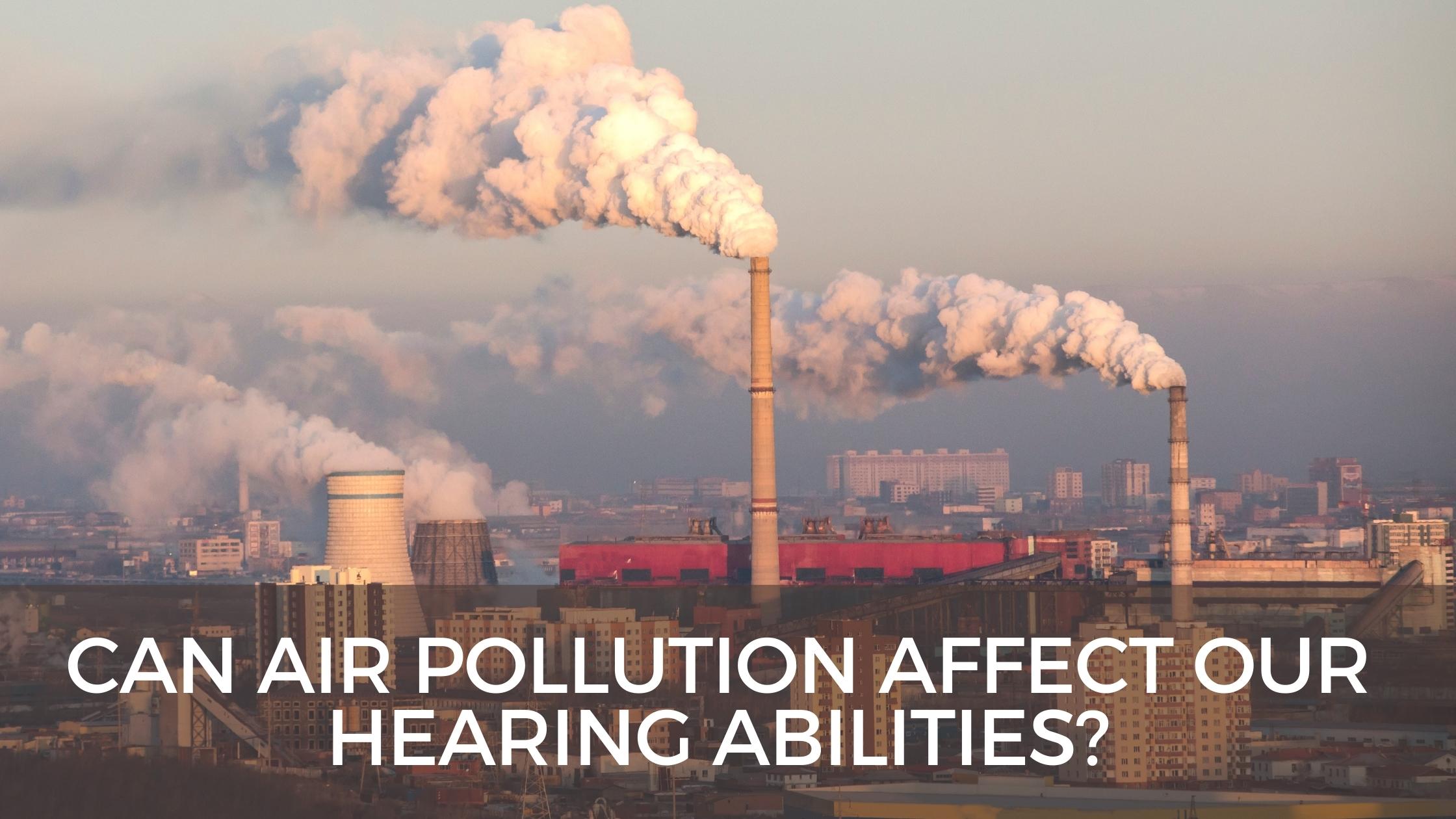Hearing ability is a truly remarkable function of the human body. When sound pressure enters the ear canal, the tiny features of the inner ear are sensitive to even the slightest changes in pressure size and shape. Detecting those differences requires fine-tuned sensory reception, but that same sensitivity makes the parts of the ear prone to damage, as well. Specifically, the tiny hair-like organelles of the inner ear called stereocilia respond to the slightest differences in sound pressure, but these cell clusters can easily become permanently damaged.
Of the many factors that can cause damage to hearing ability, a surprising factor has been discovered in a recent study: air pollution. How does air pollution affect hearing ability? In order to get a handle on the connection, let’s take a look at what the study found in raw numbers. With those facts in hand, we can begin to understand the connection between hearing loss and air pollution.
The Study
This Taiwanese study took advantage of data from the National Health Insurance Research Database. A total of 75,767 participants over 20 years of age are included in this sample, making it possible to note the effects of slight differences among them. Those in the study had no previous history of sensorineural hearing loss, the condition that was observed in the study. The paper, “Increased Risk of Sensorineural Hearing Loss as a Result of Exposure to Air Pollution,” appeared in the International Journal of Environmental Research and Public Health.
The scholars were interested in two particular gases that are evidence of air pollution: carbon monoxide and nitrogen dioxide. These two gases have been correlated with a wide range of other health outcomes, so they were interested to see if they would be related to hearing loss, as well. When the results came in, they found two significant facts. First, these two gases were indeed tied to higher rates of hearing loss among the study participants. In addition, they noticed that higher concentrations of these gases led to higher risk of hearing loss, as well. With statistical data in hand, it is the task of other researchers and doctors to understand the connection, as well as what is happening in the body when this occurs.
The Interpretation
Other studies of the relationship between hearing loss and additional factors can help to explain this finding. Many of these demonstrate a correlation with the availability of oxygenated blood. Hearing loss has been related to such conditions as cardiovascular disease, diabetes, and other physical conditions that can lead to limited oxygen supply in the bloodstream.
Many doctors and specialists believe that the stereocilia can suffer damage when they don’t get the oxygenated blood they need. Though they are continuing to explore the connection, it seems possible that low blood oxygen levels are responsible for certain types of damage, bending, and breaking in the cochlea of the inner ear.
Air pollution could be the beginning of a chain reaction that leads to hearing loss in the end. When the air has pollutant gases such as carbon monoxide and nitrogen dioxide, the respiratory and cardiovascular systems can have a limited supply of the oxygen they need. With this limitation, they might be unable to deliver enough oxygen to the ears, as well, leading to higher rates of hearing loss among people with the greatest exposure to air pollution.
As researchers continue to explore this relationship, as well as other relationships between hearing loss and external factors, one thing is clear. Getting a full diagnosis of your hearing ability is the only way to know if you can benefit from treatment.
When you get a hearing test, you will learn not only which types of sounds are the most difficult for you to hear but also just how much hearing damage has occurred. With this diagnosis in hand, you can rely on your hearing health professional to connect you with the right hearing aids to suit your needs.
A consultation will be your opportunity to describe the settings where you find hearing to be the most difficult, and that knowledge will help your hearing health professional make a good recommendation of the aids that are best for you!

